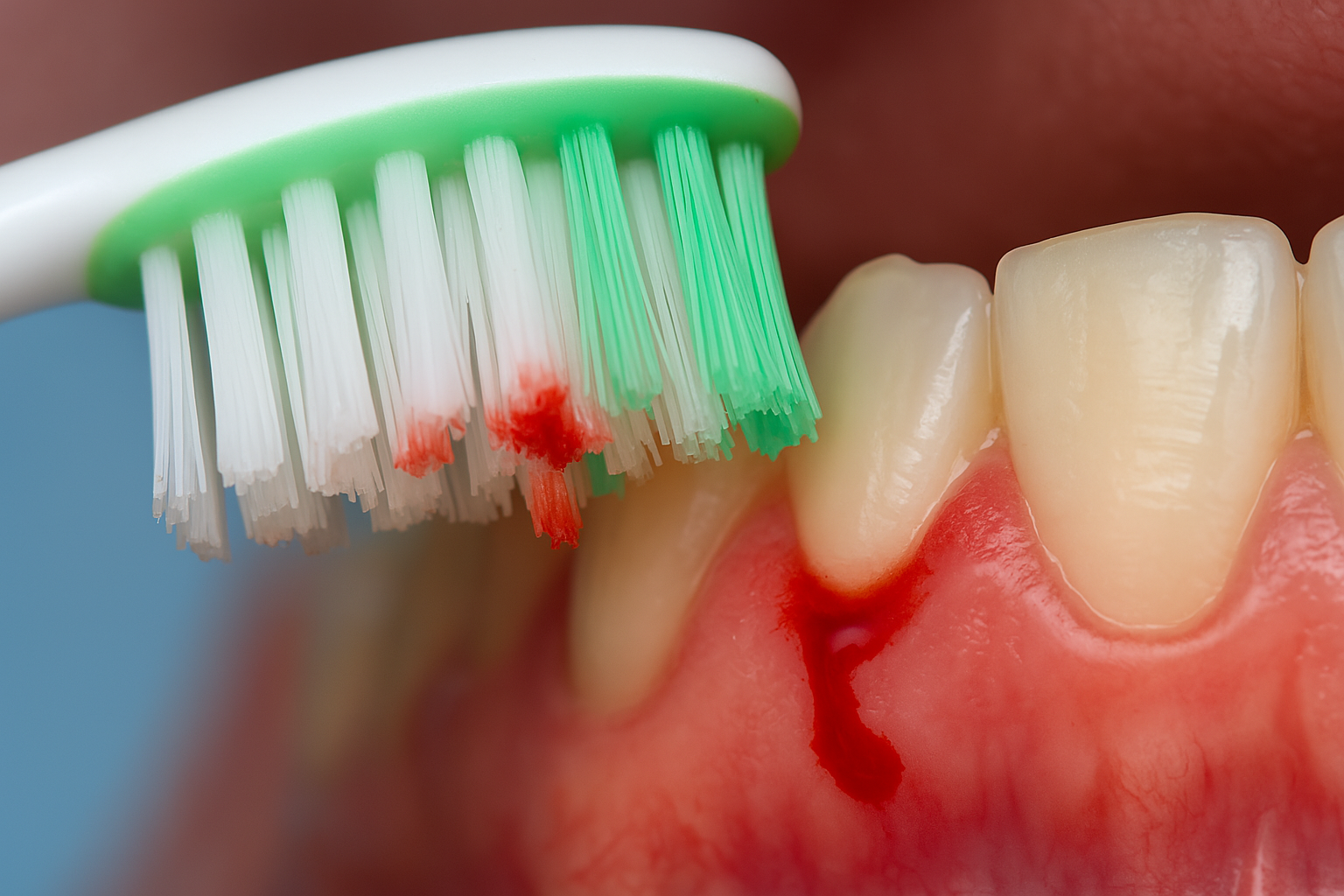Table of Contents
ToggleBleeding Gums: What’s Normal, What’s Not?
Noticed blood after brushing? It’s more common than you think, but shouldn’t be ignored.
Bleeding gums can signal early oral health issues. In this article, we’ll cover the causes,
when to see a dentist, and tips to keep your gums healthy.
What Causes Gums to Bleed?
- Gingivitis (Early Gum Disease) – Gingivitis, early gum disease, is the most common cause of bleeding gums. Plaque build-up causes inflammation, redness, and bleeding. The good news? It’s reversible with proper brushing and flossing.
- Brushing Too Hard – Sometimes, the issue is your brushing technique. Brushing too hard or using a stiff brush can irritate and bleed gums. Switch to a soft brush and treat your gums to a gentle massage, not a scrub.
- Poor Flossing Habits – Just started flossing? Good on you! A bit of bleeding at first is normal — your gums are adjusting. If it doesn’t improve in a few days, it might be a sign of inflammation worth checking.
- Hormonal Changes – Hormonal changes from pregnancy, menstruation, or menopause can make gums more sensitive and prone to bleeding. Pregnancy may also cause swelling or tenderness, known as “pregnancy gingivitis.”
- Medical Conditions and Medications – Health issues like diabetes or vitamin deficiencies, and medications like blood thinners, can make gums more likely to bleed after brushing or flossing.
When Should You Be Concerned?
A bit of occasional bleeding isn’t usually a reason to panic — but if it becomes frequent, or
you notice other symptoms like:
- Swollen or tender gums
- Bad breath that won’t go away
- Receding gums
- Loose teeth
- Pain when chewing
…it’s time to book a dental appointment. These could be signs of more advanced gum
disease (periodontitis), which requires professional treatment.
What You Can Do at Home
- Brush Gently: Use small circular motions for two minutes, twice a day.
- Floss Daily: Glide floss gently between teeth and around the base.
- Use Mouthwash: Choose alcohol-free mouthwash to reduce bacteria and freshen breath.
- Eat Well: Boost gum health with vitamin C and K from fruits, veggies, and whole foods.
- See Your Dentist: Regular cleanings remove plaque and tartar, and catch early gum
issues.
How We Can Help at Hadfield Family Dental
We understand that bleeding gums can be worrying, but the sooner we catch it, the easier it
is to treat.
At Hadfield Family Dental, we offer gentle, personalised care, from cleanings to brushing tips
and tailored treatment plans.
Our friendly team will assess your gums, explain any issues, and guide you toward a
healthier smile
The Bottom Line
Bleeding gums may seem minor, but they can signal a serious issue. With simple routine
changes and dental support, you can prevent gum disease and maintain a healthy mouth.
Not sure where to start? Come in for a check-up — we’re always happy to help.
Book your appointment today with Hadfield Family Dental. Your gums will thank
you.

Dr Reem Ali is the Head Dentist at Hadfield Family Dental, having practised for more than two decades as a qualified general dentist. Dr Ali possesses an immense passion for all things dentistry. Over the past 14 years, Dr Ali and her team have served the local Hadfield community by providing comprehensive dental care to patients of all age groups, driven by the steadfast belief that everyone deserves to have a healthy and beautiful smile. Dr Ali has a special interest in the field of Invisalign (clear teeth straighteners) and keeps tabs on advancements made in this area of dentistry.

